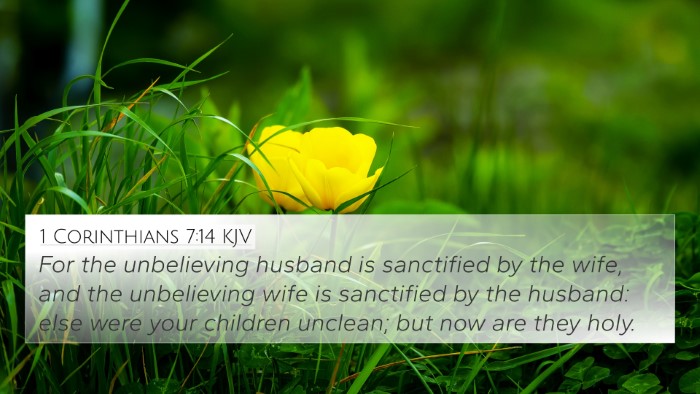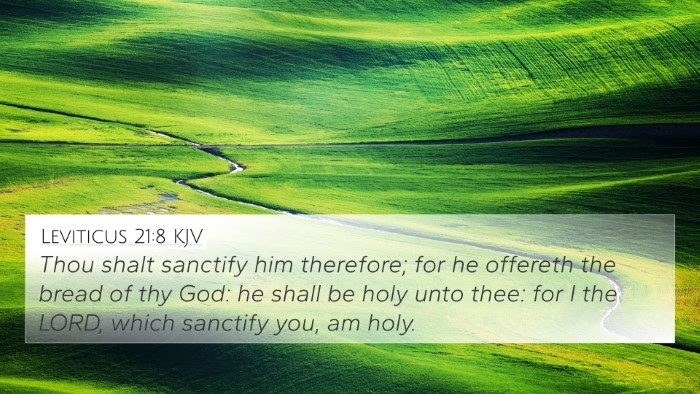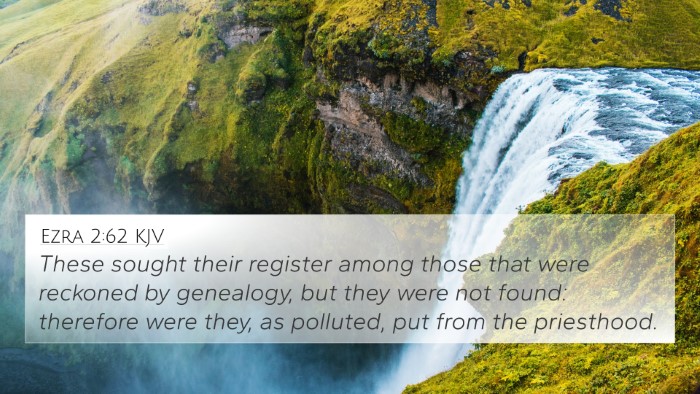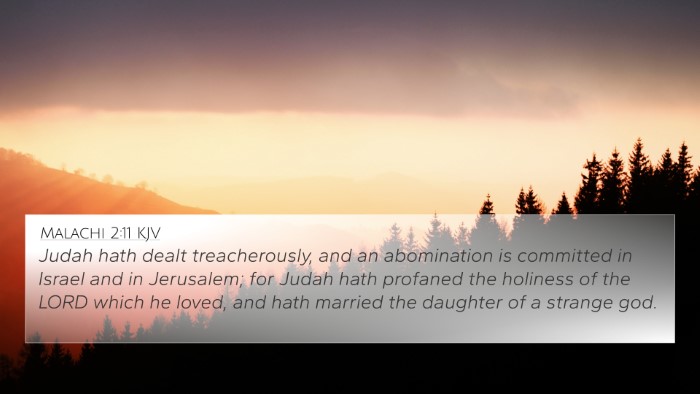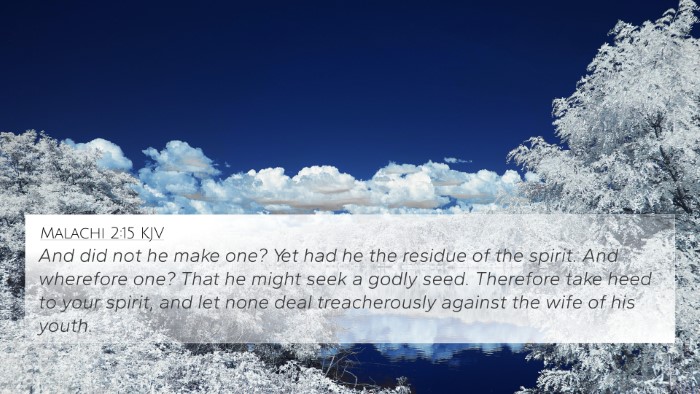Understanding Leviticus 21:15
Leviticus 21:15 states: "Neither shall he profane his seed among his people: for I the Lord do sanctify him." This verse addresses the holiness required of the priesthood and the importance of maintaining purity within the lineage of priests.
Summary of Meaning
This verse emphasizes God's standards for those who serve in religious leadership and the consequences of failing to observe these standards. It highlights the need for the priests to maintain their sanctity in their personal and familial lives.
Insights from Public Domain Commentaries
- Matthew Henry: Henry elaborates that not only the priests themselves are to be holy, but also their families. The “seed” refers to their children; hence, any defilement would impact the priest's service and relationship with God.
- Albert Barnes: Barnes expands on the notion that the sacred office comes with high expectations. He points out that a priest’s holiness is not merely personal; it has a communal impact, thus the need for a pure lineage. Barnes connects this principle with the broader theme of holiness outlined throughout Leviticus.
- Adam Clarke: Clarke stresses the idea of sanctification, noting that God sets the priest apart for a distinctive purpose. The preserving of the priestly line in purity is essential for their ministry and the spiritual welfare of the people.
Thematic Links and Cross-References
Leviticus 21:15 can be understood within the broader context of Biblical themes concerning purity, holiness in leadership, and family integrity. Below are some Bible verses that relate to each other through these themes:
- Exodus 28:1: Initiates the concept of the priesthood and its sacred duties.
- 1 Peter 2:9: Connects the idea of holiness to all believers, highlighting a royal priesthood.
- Numbers 3:10: Discusses the duties of priests and the necessity of their purity.
- Hebrews 5:1: Explores the priestly role and its importance in mediating between God and mankind.
- Ephesians 5:25-27: Relates Christ’s sanctification of the church to the need for holiness within ministry.
- Titus 1:7-9: Establishes expectations for leaders in the church, paralleling the principles found in Leviticus.
- Malachi 2:7-9: Highlights how the priest's conduct impacts the community and their relationship with God.
- James 1:27: Introduces the idea of preserving purity within one’s family as a part of true religion.
- Romans 12:1: Calls for presenting our bodies as living sacrifices, paralleling the holiness required from priests.
- Matthew 5:48: Encourages believers to be perfect as God is perfect, connecting to the theme of holiness.
Conclusion
In examining Leviticus 21:15, we see a clear call for holiness that resonates throughout the Bible. The principles of sanctification, the importance of purity in leadership, and the communal implications of individual actions are themes that are interwoven through various scripts.
Tools for Bible Cross-Referencing
For deepening your understanding and study of scriptures such as Leviticus 21:15, consider utilizing:
- Bible Concordance: Helps locate keywords and themes throughout the Bible.
- Bible Cross-Reference Guide: Offers pathways to related scriptures.
- Cross-Reference Bible Study: A method of studying the interconnections of themes and teachings across the scriptures.
- Bible Reference Resources: Online tools and books that provide extensive cross-references and thematic studies.




